
Groundbreaking Study Reveals Three Key Phases of Aging: What It Means for Your Health
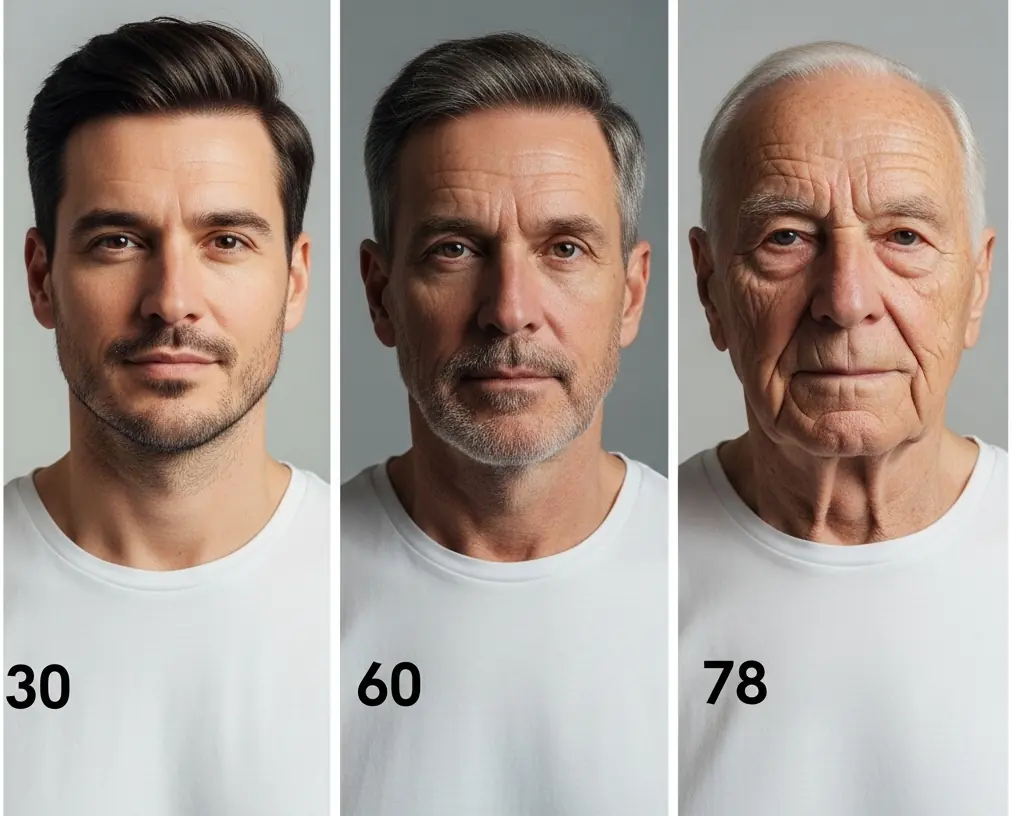
The Three Phases of Aging: Groundbreaking Research Sheds Light on How Your Body Ages
Recent groundbreaking research has revealed that the human body does not age at a steady, continuous rate. Instead, the aging process occurs in three distinct biological phases that unfold around the ages of 34, 60, and 78. This new insight could revolutionize our understanding of aging and open up the potential for more personalized and effective ways to combat age-related decline.
Research Findings on the Biological Shifts of Aging
The study, published in Nature Medicine, analyzed blood plasma samples from more than 4,000 individuals aged 18 to 95. Scientists examined nearly 3,000 different proteins found in blood plasma, identifying 1,379 proteins that changed with age. These proteins showed clear variations in three distinct "waves," marking significant turning points in how the body ages over time.
The most interesting revelation from this study is the introduction of a new method for estimating biological age—based on the presence of 373 specific proteins. This method demonstrated an impressive degree of accuracy in determining how old someone's body truly is, independent of their chronological age.
The Three Phases of Aging
1. The First Phase (Around Age 34): The first significant shift happens in our mid-thirties. This is the stage when the body begins to show signs of biological aging, but these changes are subtle and may not be noticeable right away. During this phase, the first wave of protein changes occurs, marking the beginning of physical decline at a molecular level.
2. The Second Phase (Around Age 60): The second major biological shift takes place around the age of 60. This marks a more pronounced turning point in the aging process, where more significant biological changes begin to accumulate. At this stage, individuals may experience noticeable effects on their physical and cognitive health due to these molecular shifts.
3. The Third Phase (Around Age 78): The third and final major shift happens around age 78. By this time, the aging process has accumulated over decades, and the body may begin to experience more severe consequences of aging. This phase includes further degradation of various biological systems and marks the final shift in aging that could make interventions more challenging but also more critical.
Biological Age vs. Chronological Age
An intriguing discovery in the research was the ability to estimate an individual’s biological age, which may differ from their chronological age. Participants whose biological age was younger than their actual age were found to be in better health, demonstrating that how we age at the molecular level can have significant health outcomes. This raises the possibility that people could age "more slowly" than others, and thus live longer, healthier lives if their biological processes are optimized.
Interestingly, the research also highlighted that men and women experience these protein level shifts differently, suggesting that aging is not only biological but may also be gender-specific at the molecular level.
The Road Ahead for Anti-Aging Interventions
While clinical applications of this research are still years away, the findings open up exciting possibilities for personalized anti-aging treatments. As scientists continue to better understand the molecular shifts that happen as we age, we may one day be able to intervene more effectively to slow down or reverse some aspects of biological aging. This could lead to more individualized health strategies to maintain vitality and health for a longer period of time.
Conclusion: A Step Toward Healthier, Longer Lives
This study highlights the complexity of aging and suggests that it may be possible to tailor interventions that could help us maintain a higher quality of life well into our later years. Understanding the three distinct phases of aging and how our bodies change at the protein level could revolutionize how we approach aging, disease prevention, and overall health maintenance.
As the research develops, it could potentially lead to breakthroughs that allow us to intervene earlier and more effectively, giving us the tools to maintain our health and well-being for much longer.
Sources:
-
Nature Medicine - "Biological Shifts in Aging: A Study of 4,000 Blood Samples"
-
Medical Xpress - "Groundbreaking Study Reveals How the Body Ages in Three Phases"
News in the same category


An unusual abdominal sign warns of severe fa:tty l!ver: If you see it, get checked immediately.
A gastroenterologist has suggested how to recognize fatty liver disease from an unusual sign in the abdomen.
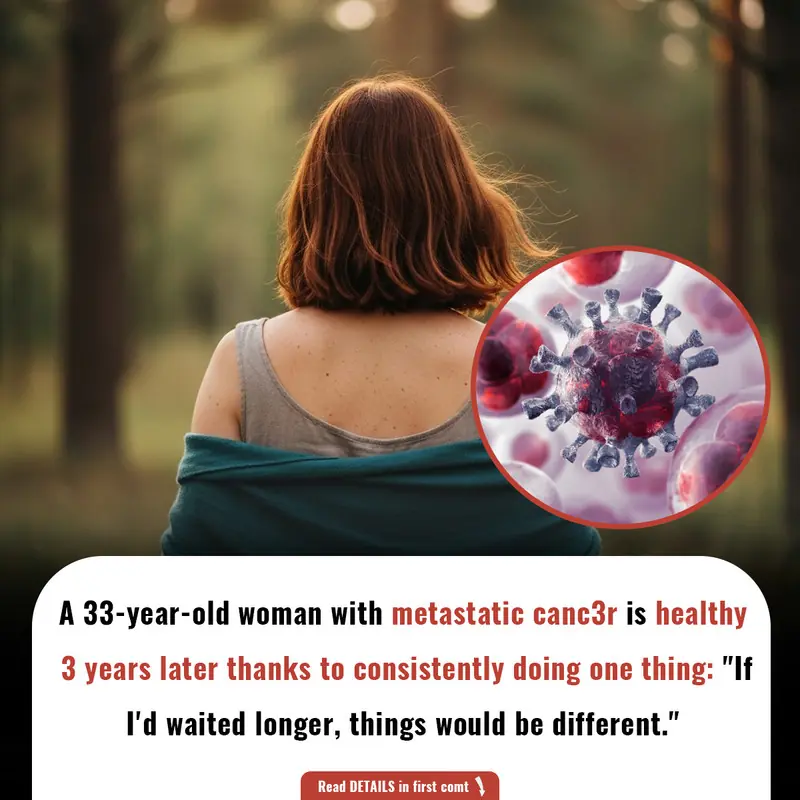
A 33-year-old woman with metastatic canc3r is healthy 3 years later thanks to consistently doing one thing: "If I'd waited longer, things would be different."
Stunned after receiving the health check results, the 33-year-old woman still felt fortunate because she had detected the dangerous disease in time and still had a chance for treatment.

Don't buy these 3 kinds of oysters; even seafood shop owners won't let their families consume them.
If you want to buy good and clean oysters to eat, you must immediately avoid these types.

Straight vs. curved cucumbers: Which tastes better? My mother, with 40 years of farming experience, shares 3 key secrets.
The 'beautiful' things may have deceived you!

Beyond superstition: 5 items placed at your bedside secretly "drain" your health, leaving you more tired the more you sleep.
Green pots, plush bears, and small decorative items are all commonly seen objects in the bedrooms of many families. However, they can completely affect your health.

Is showering 2-3 times a day good in hot weather? Doctors warn certain bathing habits increase stroke risk.
In hot weather, many people have the habit of showering 2-3 times a day to cool down their bodies. However, is this habit good for health?

A 22-year-old man developed k!dney failure, fa:tty l!ver, and gout simultaneously, regretting drinking one type of beverage for four years.
A 22-year-old young man named Wang Yi, from Taiwan (China), went for a check-up and was unexpectedly diagnosed with kidney failure, fatty liver disease, and gout.

Eating too much of these 5 vegetables is like "poisoning" your liver, and the first one is on almost every family's dinner table.
The liver is an important detoxifying organ of the body. However, some familiar vegetables in daily meals can become silent 'enemies,' harming the liver if not used properly.

Woman suffers severe consequences after using bee stings to treat breast canc3r
Having breast cancer but not going to the hospital for treatment, instead opting for honeybee stings at home, the woman in Ho Chi Minh City has to bear the heavy consequences as the tumor complicates and metastasizes to many places.

Everyone knows canc3r can be hereditary, but which types of cancer have a higher risk?
Some hereditary cancers related to genetic mutations, such as breast cancer, ovarian cancer, and prostate cancer, can be managed and screened early thanks to genetic counseling.

Prolonged "minor ailments" could indicate canc3r, so beware of these 7 signs.
If you continuously experience headaches, loss of appetite, dry cough, and continuous weight loss... you need to see a doctor immediately as this could be a sign of cancer.
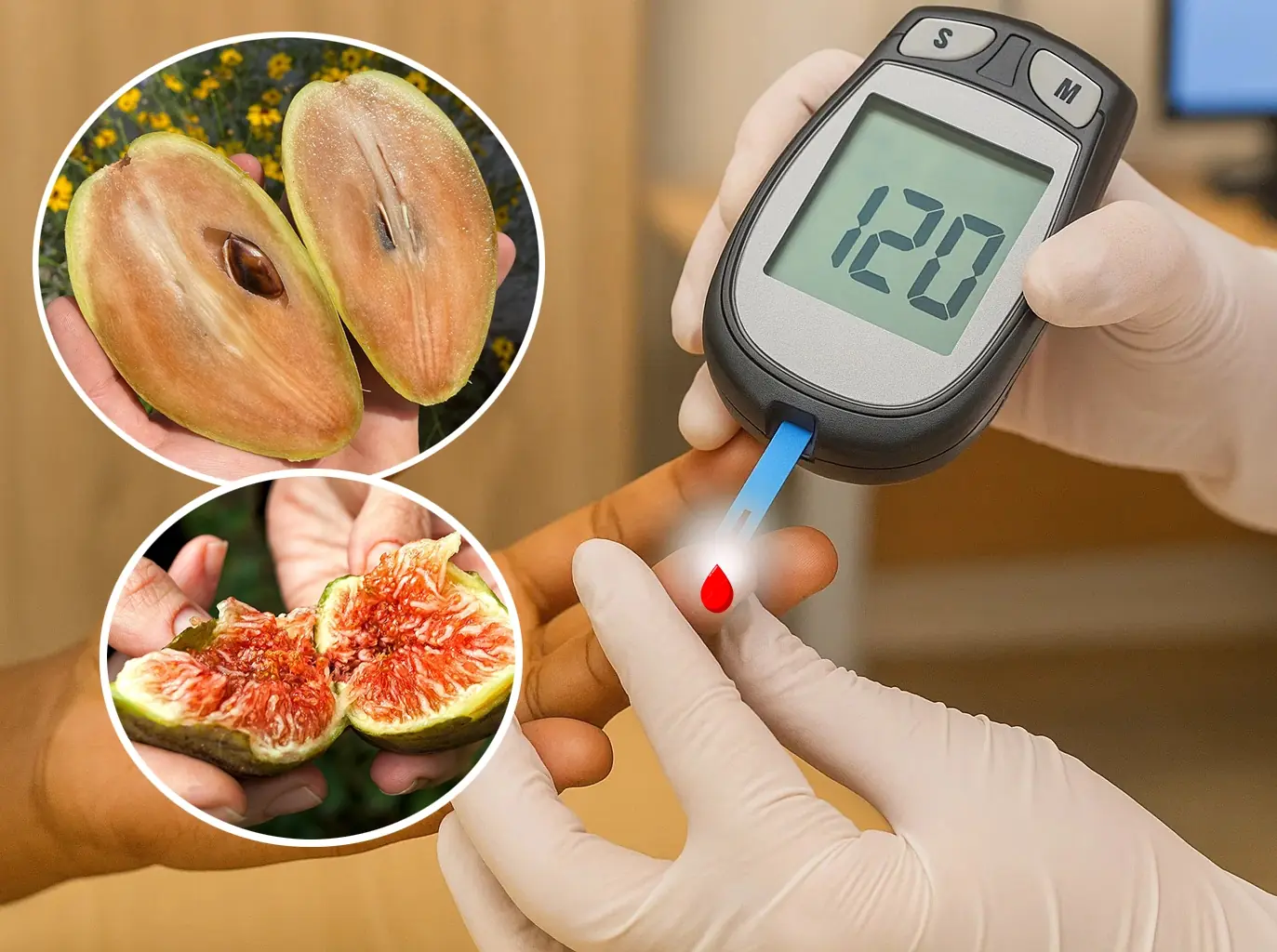
8 types of fruit that contain a lot of sugar should be limited to reduce the risk of diabetes and protect health
Fruit is good for you, but certain kinds contain a lot of sugar. Overeating can impact your health by raising blood sugar levels.

Hidden St0mach Canc3r Risk: How H. Pylori Infection Can Lead to Silent Canc3r and What You Need to Know
Learn about the link between Helicobacter pylori infection and stomach canc3r. Discover how this common food and waterborne bacteria could lead to silent canc3r and how early detection and treatment can help prevent it.
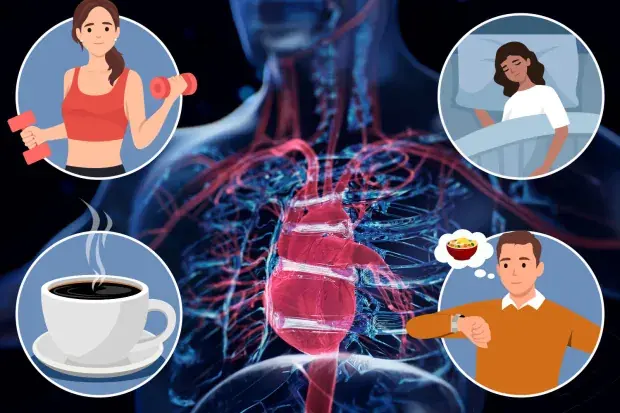
5 Simple Habits to Slash Heart Att@ck and Stroke Risks - Experts Reveal the Secrets
Discover 5 easy daily habits that can significantly reduce the risk of heart attack and stroke. From exercise to diet, learn how small lifestyle changes can protect your heart and improve overall health.

4 Visible Signs of Fatty Liver Dise@se on Your Face and How to Recognize Them
Discover the 4 common facial signs of fatty liver disease (NAFLD) like puffiness, skin discoloration, and acne. Learn how liver health affects your skin and when to seek medical help.

Vitamin D Can Reduce Tooth Decay by 50%, Study Finds: A Natural Solution to Dental Health
Discover how vitamin D can reduce tooth decay by 50%. Learn about its role in preventing dental caries, the link between vitamin D and oral health, and more in this detailed guide.
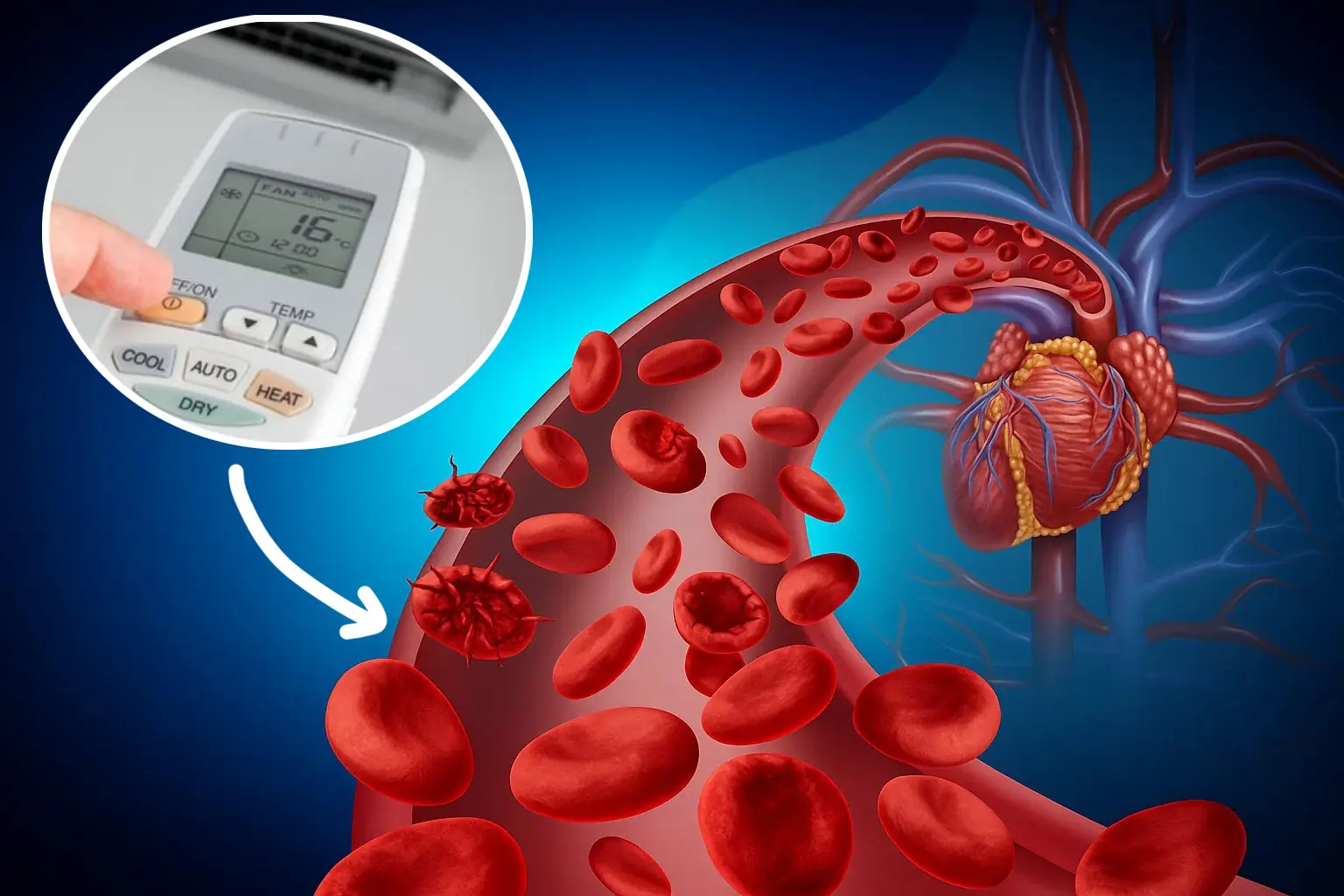
3 habits that "destroy blood vessels" faster than eating fatty meat: Many people still do them carelessly every summer
There are other causes of "damaging blood vessels" besides eating a lot of fatty meat and fatty foods. Three frequent summertime activities can also damage blood vessels, according to physicians.

Top 3 Seeds and 3 Drinks to Reduce Bloating, According to a Renowned Gastroenterologist
Discover the top seeds and drinks recommended by Dr. Saurabh Sethi to reduce bloating. Learn about sesame, flax, chia seeds, and drinks like ginger tea, kefir, and more.

There's a secret on b33r bottle caps: Target this point to open them easily by hand.
Many people have used their teeth, the edge of a table, or the armrest of a chair to open beer bottle caps – both dangerous and likely to cause damage. In fact, there is a special 'weak point' on beer bottle caps. Just aim correctly at this spot, and yo
News Post

When washing dishes, follow this method to remove all chemicals: Don't rush and risk "eating" detergent.

An unusual abdominal sign warns of severe fa:tty l!ver: If you see it, get checked immediately.
A gastroenterologist has suggested how to recognize fatty liver disease from an unusual sign in the abdomen.

A 33-year-old woman with metastatic canc3r is healthy 3 years later thanks to consistently doing one thing: "If I'd waited longer, things would be different."
Stunned after receiving the health check results, the 33-year-old woman still felt fortunate because she had detected the dangerous disease in time and still had a chance for treatment.

Don't buy these 3 kinds of oysters; even seafood shop owners won't let their families consume them.
If you want to buy good and clean oysters to eat, you must immediately avoid these types.

Straight vs. curved cucumbers: Which tastes better? My mother, with 40 years of farming experience, shares 3 key secrets.
The 'beautiful' things may have deceived you!

Beyond superstition: 5 items placed at your bedside secretly "drain" your health, leaving you more tired the more you sleep.
Green pots, plush bears, and small decorative items are all commonly seen objects in the bedrooms of many families. However, they can completely affect your health.

Is showering 2-3 times a day good in hot weather? Doctors warn certain bathing habits increase stroke risk.
In hot weather, many people have the habit of showering 2-3 times a day to cool down their bodies. However, is this habit good for health?

A 22-year-old man developed k!dney failure, fa:tty l!ver, and gout simultaneously, regretting drinking one type of beverage for four years.
A 22-year-old young man named Wang Yi, from Taiwan (China), went for a check-up and was unexpectedly diagnosed with kidney failure, fatty liver disease, and gout.

2-Step Korean-Inspired Glowup Routine: Achieve Radiant, Youthful Glass Skin At Home
The combination of rice, flaxseed, and other nourishing ingredients offers numerous benefits, from boosting hydration to fighting free radicals and improving skin texture. Follow this routine consistently, and you’ll be on your way to achieving the cove

Eating too much of these 5 vegetables is like "poisoning" your liver, and the first one is on almost every family's dinner table.
The liver is an important detoxifying organ of the body. However, some familiar vegetables in daily meals can become silent 'enemies,' harming the liver if not used properly.

The Legacy of Ruby Middleton Forsythe: A Lifelong Advocate for Education and Civil Rights
Discover the inspiring life of Ruby Middleton Forsythe, a dedicated educator who shaped the future of African-American children in South Carolina, teaching for over six decades despite adversity.

A 14-Year-Old’s Work Ethic: How One Young Girl’s Determination is Shaping Her Future
Discover the inspiring story of a 14-year-old girl who took the initiative to get a job, worked hard, and is saving for her future. Learn how determination and responsibility are shaping her dream to become a doctor.

Woman suffers severe consequences after using bee stings to treat breast canc3r
Having breast cancer but not going to the hospital for treatment, instead opting for honeybee stings at home, the woman in Ho Chi Minh City has to bear the heavy consequences as the tumor complicates and metastasizes to many places.

Mid-Flight Miracle: How a WestJet Flight Attendant Became a Baby-Whispering Hero
A family's challenging flight with a crying 4-month-old was transformed by the extraordinary kindness of a WestJet flight attendant. Discover this heartwarming story of empathy and going above and beyond in customer service.

Quiet Strength and Southern Grace: The Unseen Heroism of a Mother-in-Law Named Sharon
Discover the powerful story of Sharon, a mother-in-law whose quiet resilience and unwavering love carried her family through cancer, caregiving, and grace under pressure.

The Wisdom of Experience: How a $10 Withdrawal Taught a Bank Teller a Priceless Lesson
An elderly customer's request for a $10 withdrawal led to a viral moment of hidden wisdom. This compelling story reveals how patience and respect for elders can transform interactions, offering a powerful lesson in customer service and human dignity.

DIY Flaxseed Gel & Okra Hair Gel for Natural Hair Growth and Frizz-Free Shine
By incorporating these DIY treatments into your routine, you can achieve healthier, shinier, and fuller hair—without relying on harsh chemicals or expensive products.

Everyone knows canc3r can be hereditary, but which types of cancer have a higher risk?
Some hereditary cancers related to genetic mutations, such as breast cancer, ovarian cancer, and prostate cancer, can be managed and screened early thanks to genetic counseling.

Katherine Swynford: From Mistress to Duchess and the Legacy of Love and Power
Discover the extraordinary life of Katherine Swynford, from a lady-in-waiting to a duchess, her deep love story with John of Gaunt, and the lasting impact of her children, the Beauforts, on English history.

Prolonged "minor ailments" could indicate canc3r, so beware of these 7 signs.
If you continuously experience headaches, loss of appetite, dry cough, and continuous weight loss... you need to see a doctor immediately as this could be a sign of cancer.